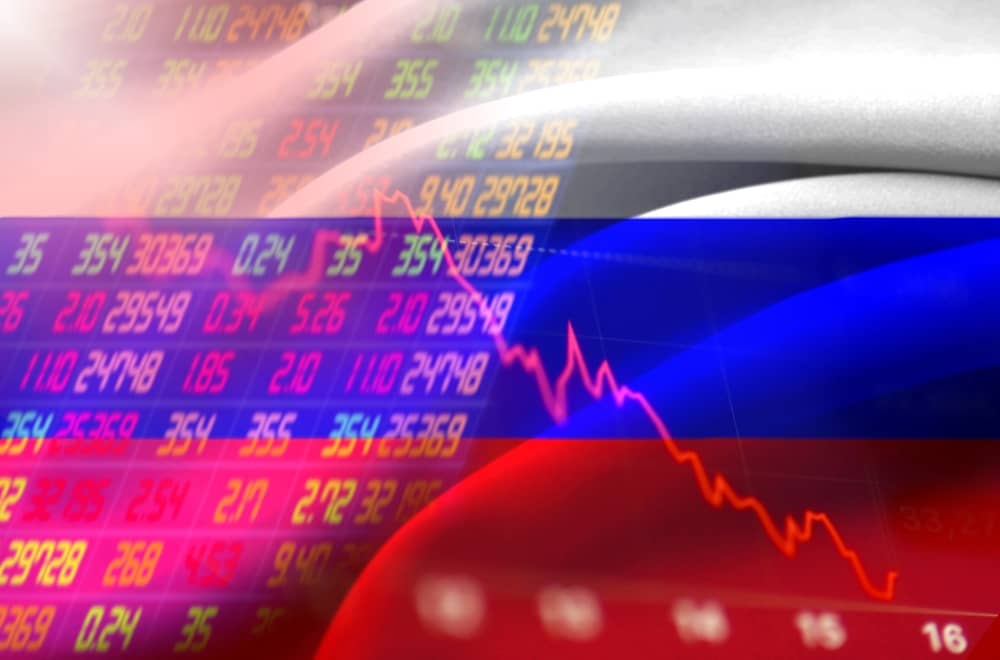The credit default swap (CDS) market, which many view as a source of true equity valuation, may be an ominous marker for Russian stocks.
In fact, Russian equities may be worth nothing at all, according to research posted by MSCI last week.
“We find that trading in Russian corporate CDS has surged since the Russia-Ukraine war began. Increased trading activity may indicate that the CDS market contains information not present in the equity market.
“Therefore our research incorporates the CDS market’s implied default probabilities to model Russian equity prices,” MSCI said.
An accompanying graph shows that trading in Russian corporate CDS spiked upward in early 2022 and has only fallen off recently, though it remains elevated from what it had been.
MSCI further noted that while the Moscow Exchange saw domestic equity prices fall 40% in the wake of the invasion, the Russian CDS market has essentially gone to zero, with a graph showing that the probability of default for four key Russian equities has also spiked upward and remains at levels around 90%.
It also pointed out that most foreign investors cannot trade Russia’s domestic equities, while the CDS market mostly represents institutional investors.
While Russian companies may continue to operate in a fairly normal way, and their equities may continue to trade on the domestic exchange, the blog says, CDS investors are essentially valuing Russian companies at zero.
Russia ETFs face uncertainty
“This lack of value may be emblematic of a combination of technical-default fear, failure of the CDS auction mechanism, restrictions on trading CDS linked to the securities of sanctioned companies, and a lower perceived value of Russian equity for CDS investors,” the authors said, noting that the pricing divide could be alleviated if the Russia is able to rejoin the global economy and the international sanctions are lifted. However, that does not seem like a likely outcome any time soon.
What this means for the ETFs tracking Russia’s market is up in the air. The Xtrackers MSCI Russia Capped Swap UCITS ETF, the HSBC MSCI Russia Capped UCITS ETF, the Lyxor MSCI Russia UCITS ETF and the Invesco RDX UCITS ETF all halted trading in early March in the days following Russia’s invasion of Ukraine.
On 20 May, BlackRock announced plans to terminate its Russia and Eastern Europe ETFs that track MSCI indices and trade on the London Stock Exchange. The ETFs had combined assets of roughly $126m at the time of the announcement and will delist on or around June 22.
Given that BlackRock has deemed Russia uninvestable, the question of what this means for the rest of the European-listed Russia ETFs.
On 24 February, MSCI revealed it was freezing Russian securities in its indices, the day the Russian invasion of Ukraine began.
After a consultation period, during which it polled investors, it concluded Russian markets were uninvestable and removed Russian securities from its emerging markets indices.
The index provider currently calculates a standalone index for Russia apart from its standard index offering.
This story was originally published onETF.com
Related articles




